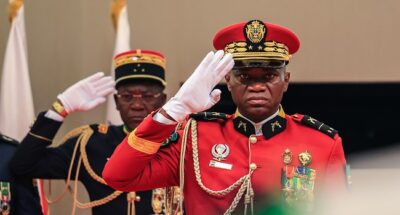Gabon initiates national dialogue to transition back to civilian governance. The National Dialogue in Gabon, aimed at facilitating a return to constitutional governance and putting an end to the 55-year Bongo dynasty, commenced on Tuesday in the central African nation.
Transitional President General Brice Oligui Nguema inaugurated the dialogue, addressing a gathering of thousands of civilians and military personnel. Nguema expressed optimism about the Inclusive Major National Dialogue, anticipating that Catholic Archbishop Jean-Patrick Iba-Ba, leading the discussion, will formulate a plan outlining the duration of the transitional administration.
Nguema has been in power in Gabon since last August, following a bloodless coup that removed President Ali Ben Bongo.
The Bongo family had maintained a firm grip on Gabon for over 55 years before this. Iba-Ba highlighted the significant turnout of political figures, civil society representatives, youth leaders, traditional authorities, clergy, and individuals with disabilities as a reflection of the citizens’ desire for improved living conditions and the freedom to express themselves without fear.
The dialogue aims to address the grievances suffered by the people of Gabon under previous administrations that prioritized power over the welfare of the populace. Unlike past conferences that centralized power in the hands of leaders, this dialogue seeks to tackle Gabon’s economic, social, and political challenges. Participants will evaluate approximately 50,000 proposals aimed at enhancing living standards in Gabon.
The dialogue is set to propose a new political, economic, and social framework for the nation post-transition. An initial plan indicated General Nguema’s leadership for 24 months until elections in August 2025. However, the transitional government now plans to review a draft constitution for approval through a referendum, followed by elections to transfer authority to civilian leaders.
Critics from opposition and civil society circles argue that Nguema’s inclusion of military officials and loyalists to the previous regime is an attempt to prolong his rule. Some believe that organizing elections to hand over power to civilians would have been a more democratic approach. Political analyst Romuald Assogho Obiang suggested that Nguema should have prioritized organizing elections to ensure a legitimate transfer of power to civilian authorities post-dialogue.
The outcome of the dialogue may face challenges if a new leader with different agendas assumes power. Nguema and his allies assert that the dialogue will establish electoral guidelines and determine eligible candidates for future presidential elections. Nguema has committed to honoring the resolutions agreed upon during the dialogue.

